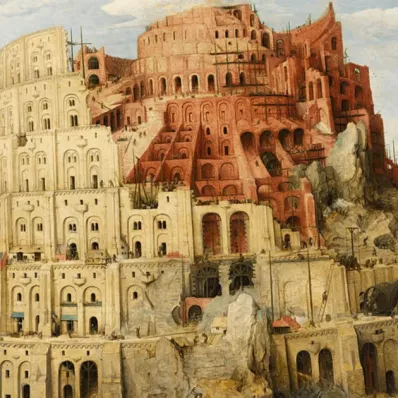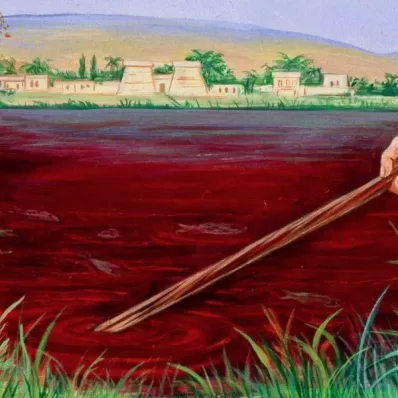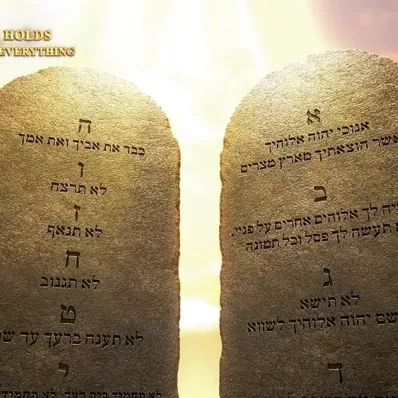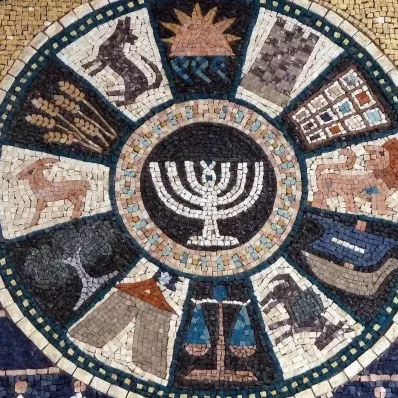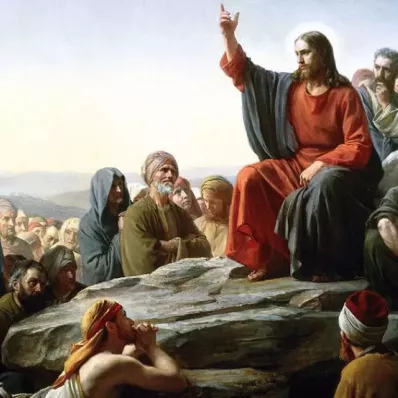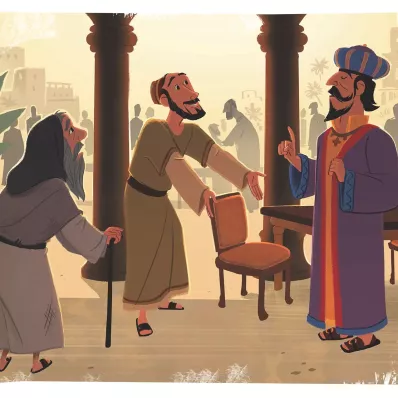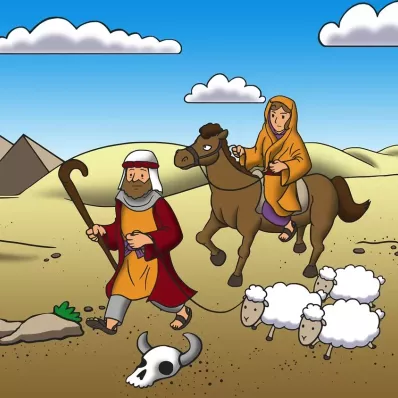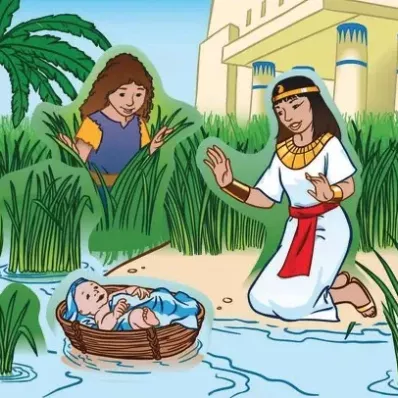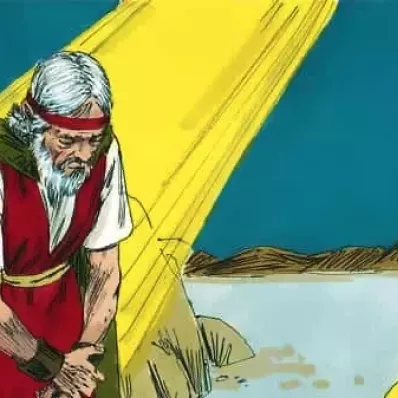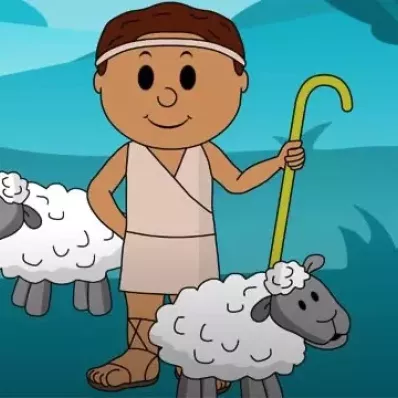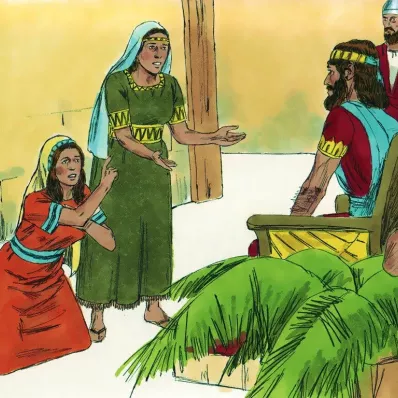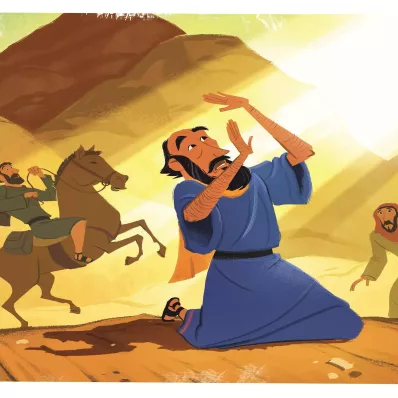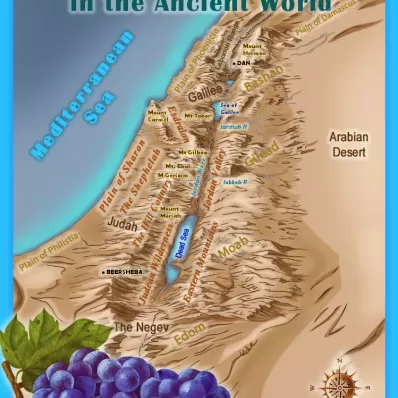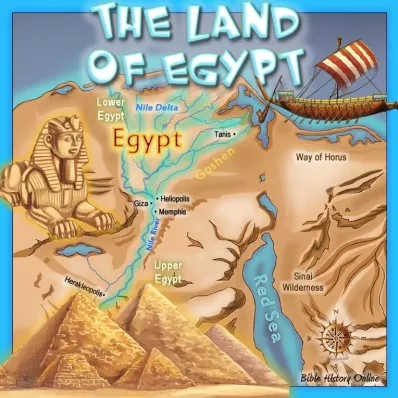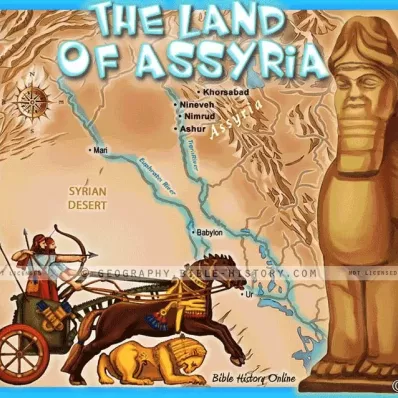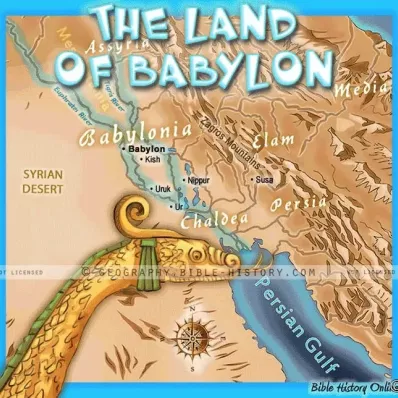Desert
(1.) Heb. midbar, "pasture-ground;" an open tract for pasturage;
a common (Joel 2:22). The "backside of the desert" (Ex. 3:1) is
the west of the desert, the region behind a man, as the east is
the region in front. The same Hebrew word is rendered
"wildernes," and is used of the country lying between Egypt and
Israel (Gen. 21:14, 21; Ex. 4:27; 19:2; Josh. 1:4), the
wilderness of the wanderings. It was a grazing tract, where the
flocks and herds of the Israelites found pasturage during the
whole of their journey to the Promised Land.
The same Hebrew word is used also to denote the wilderness of
Arabia, which in winter and early spring supplies good pasturage
to the flocks of the nomad tribes than roam over it (1 Kings
9:18).
The wilderness of Judah is the mountainous region along the
western shore of the Dead Sea, where David fed his father's
flocks (1 Sam. 17:28; 26:2). Thus in both of these instances the
word denotes a country without settled inhabitants and without
streams of water, but having good pasturage for cattle; a
country of wandering tribes, as distinguished from that of a
settled people (Isa. 35:1; 50:2; Jer. 4:11). Such, also, is the
meaning of the word "wilderness" in Matt. 3:3; 15:33; Luke 15:4.
(2.) The translation of the Hebrew "Aribah'", "an arid tract"
(Isa. 35:1, 6; 40:3; 41:19; 51:3, etc.). The name Arabah is
specially applied to the deep valley of the Jordan (the Ghor of
the Arabs), which extends from the lake of Tiberias to the
Elanitic gulf. While "midbar" denotes properly a pastoral
region, "arabah" denotes a wilderness. It is also translated
"plains;" as "the plains of Jericho" (Josh. 5:10; 2 Kings 25:5),
"the plains of Moab" (Num. 22:1; Deut. 34:1, 8), "the plains of
the wilderness" (2 Sam. 17:16).
(3.) In the Revised Version of Num. 21:20 the Hebrew word
"jeshimon" is properly rendered "desert," meaning the waste
tracts on both shores of the Dead Sea. This word is also
rendered "desert" in Ps. 78:40; 106:14; Isa. 43:19, 20. It
denotes a greater extent of uncultivated country than the other
words so rendered. It is especially applied to the desert of the
peninsula of Arabia (Num. 21:20; 23:28), the most terrible of
all the deserts with which the Israelites were acquainted. It is
called "the desert" in Ex. 23:31; Deut. 11:24. (See JESHIMON
T0002050.)
(4.) A dry place; hence a desolation (Ps. 9:6), desolate (Lev.
26:34); the rendering of the Hebrew word "horbah'". It is
rendered "desert" only in Ps. 102:6, Isa. 48:21, and Ezek. 13:4,
where it means the wilderness of Sinai.
(5.) This word is the symbol of the Jewish church when they
had forsaken God (Isa. 40:3). Nations destitute of the knowledge
of God are called a "wilderness" (32:15, "midbar"). It is a
symbol of temptation, solitude, and persecution (Isa. 27:10,
"midbar"; 33:9, "arabah").

